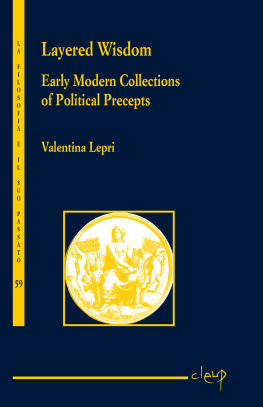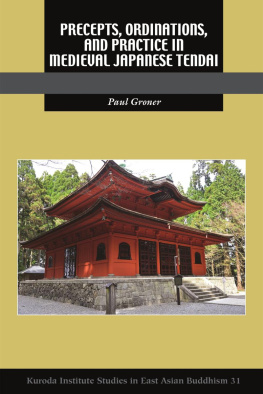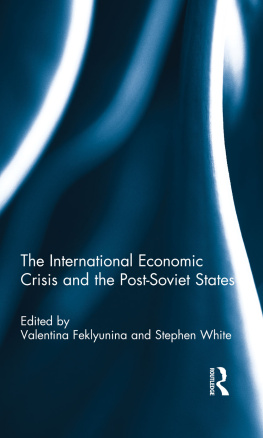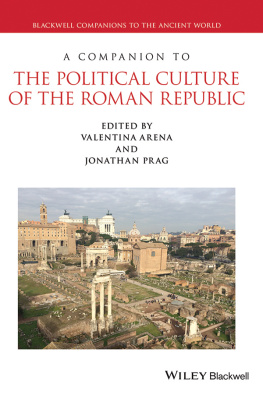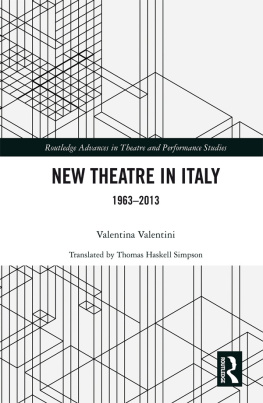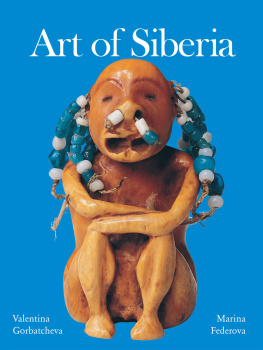La filosofia e il suo passato
Collana diretta da
Marco Forlivesi, Fabio Grigenti, Sarah Hutton, Mario Longo, Giuseppe Micheli, Gregorio Piaia
Comitato scientifico
Enrico Berti, Carlo Borghero,
Mrio Santiago de Carvalho, Michele Ciliberto,
Girolamo Cotroneo, Chiara Crisciani, Michel-Henri Kowalewicz,
Filippo Mignini, Ann Moyer, Stefano Poggi,
Riccardo Pozzo, Jacob Schmutz
Valentina Lepri
Layered Wisdom
Early Modern Collections of Political Precepts
Layered wisdom : early modern collections of political precepts / Valentina Lepri. Padova : Cleup, 2015. 229 p. ; 22 cm. (La filosofia e il suo passato ; 59)
ISBN 978 88 6787 445 3 (print)
ISBN 978 88 6787 446 0 (ePub)
1. Politica Aforismi Sec. 16.
I. Lepri, Valentina
320.09031
First edition: October 2015
First digital edition: December 2015
ISBN 978 88 6787 445 3 (Print)
ISBN 978 88 6787 446 0 (ePub)
2015 CLEUP
Coop. Libraria Editrice Universit di Padova
via G. Belzoni 118/3 Padova (t. +39 049 8753496)
www.cleup.it
www.facebook.com/cleup
All right reserved.
Publication proposals should be addressed to: Professors Giuseppe Micheli and Gregorio Piaia, Universit degli Studi di Padova, Dipartimento FISPPA, Piazza Capitaniato n. 3, I-35139 Padova (PD); e-mail: . Acceptance for publication of the submitted texts is conditional on a peer review process.
Cover: Raffaello , La filosofia
(Palazzi Vaticani, Stanza della Segnatura)
Table of contents
Foreword
The idea that knowledge is constructed jointly, through a collective effort, is an ancient concept that dates back to the classical age. It was, however, in the early modern age that it became the basis of a programmatic plan for a number of institutions, through the support of the powerful new instrument of printing. Throughout Europe academies, universities and symposia were engaged in intellectual debates regarding the epistemological characteristics of the subjects of study, and these discussions also extended to methodological approaches and concerned the hierarchy between disciplines.
The subject of this book is not the sites traditionally appointed to the promotion of knowledge, but the printing workshops and the various professional figures operating in the sphere of publishing who fostered the production of a particular type of collective knowledge in the early modern age: the collections of political precepts. The production of Renaissance political precepts is an extremely vast subject. The numerous studies that have addressed it to date have concentrated predominantly on the use of the precept as a vehicle for specific currents of thought, such as Neostoicism and Tacitism, or to circulate the reflections of certain censured writers, foremost among them Niccol Machiavelli.
However, an equally important aspect of these works, which is connected with their intrinsically choral nature, has been completely neglected. The true merit for the success of such collections resides with the editors, translators and publishers of the volumes, whose work gave rise to a fundamental cultural experience which played a decisive role, not only in the circulation of the texts but also in the political debate in general.
Indeed, the multiplicity of voices that characterises the anthologies of political precepts is found not only within the covers of the books, but in the context of their production as a whole, since it extends to all those involved in their making. In the print shops of the late 16th century, the publishers and their collaborators showed themselves to be attentive to the market but also to social change, to the extent that they intervened on the texts with the greatest freedom. They supplemented them with commentaries and guided the reader by providing explanatory tables and compendia, with the result that and this is the most interesting aspect at times their manipulations constituted works in their own right. In their reorganisation, their cutting here and adding there, they constructed new and original collections on political topics, both by reworking existing anthologies and by developing new ones. They did so with what would probably nowadays be considered a lack of due respect for the original texts and authors, selecting fragments of the writings of different thinkers and appropriating their words and ideas.
There is nothing odd about the fact that in their work which at times resulted in a radical distortion of the original material they acted as if they themselves were the authors. And thats not all: by drawing emblematic phrases from the writings of other thinkers, they transformed them too into precept writers: they were writers of maxims malgr eux , since they had at no point made a conscious decision to try their hand at the genre. Thus, in such anthologies we might find on the same page precepts by Fadrique Furi Ceriol and reflections by the editor of the volume rubbing shoulders with maxims taken from the writings of, say, Paolo Giovio.
However many times the aphorisms were mixed and matched, changed hands and places, the aim of various editions continued to be the same: to furnish advice and instructions for government along with a new vision of politics. The lack of attention towards this extraordinary aspect of the cultural history of the early modern age can probably be explained by the fact that it is a concealed collective production. Indeed, the persons involved both authors and editors do not act in the same place and contemporarily but in different social contexts and at different times. The common effort is bent to the same purpose, namely to elucidate politics, but it materialises in a vertical direction through a stratification of actions at the end of which only the finished object, the book, documents the participation of the various agents.
This study is devoted to a description of the main features of several texts and their editorial history, developing over a timespan stretching approximately from the end of the sixteenth century to the middle of the seventeenth. The phenomenon is too vast to permit a complete reconstruction. Consequently, the idea is to focus on a series of emblematic cases, mapping a symbolic route from the compilation of the first collections, through the codification of the genre by experts in textual production up to its gradual transformation and decline.
The first two sections of the book provide a general overview of the argument and the genesis of the precepts in Tuscany. One of the financial and economic powers of the time, Florence was also a place of great political changes. It had had a long history as a Republic, comprising innovative systems of political and social control, such as the civic militia. Equally out of the ordinary was the rapid rise and hegemony of the Medici family, richly entwined with internal intrigues and foreign relations. Among its more cultured citizens, the practice of government was an argument of absorbing interest, directly connected as it was with the business and the destiny of the various dynasties. Consequently politics was frequently the subject of texts of different kinds, from treatises to humanist dialogues, and even notes in the Zibaldoni . And it was indeed in Florence that two works saw the light that were to provide an inspiring model for the editors of the anthologies of precepts, who used them to usher in a season of intense experimentation. These were the Ricordi by Francesco Guicciardini and Gli avvedimenti civili by Giovan Francesco Lottini, two writers who had very little in common in terms of education and career, but whose destinies were strangely linked by the great and often joint popularity which their precepts enjoyed in late-sixteenth-century Europe. Conceived for private use, these collections were the fruit of the writers experience in their capacities as counsellors and ambassadors: their main subject is the rules of politics which are illustrated not ex parte principis , but rather addressed directly to his assistants, and to the political counsellors in particular.


